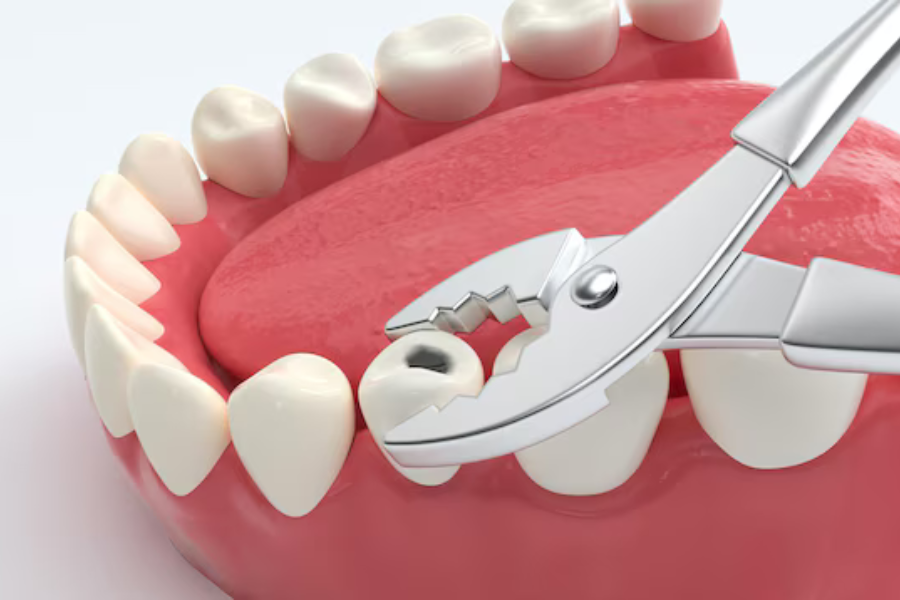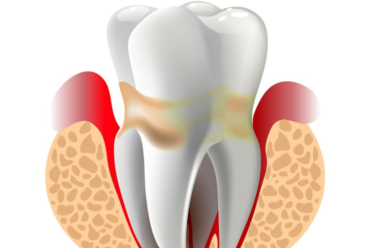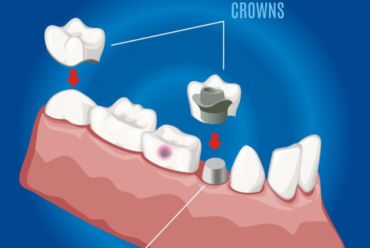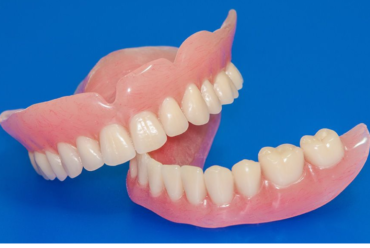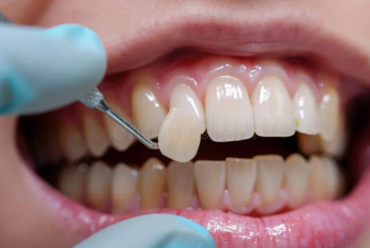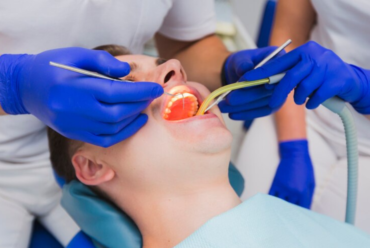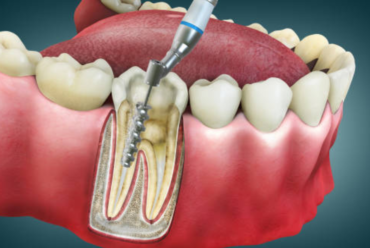What Are the Risks and Complications of Tooth Extractions?
Tooth extraction is a common dental procedure performed for various reasons, such as severe decay, gum disease, overcrowding, or impacted wisdom teeth. While extractions are generally safe when performed by a qualified dentist or oral surgeon, they do come with potential risks and complications. Understanding these risks can help patients prepare for the procedure and take necessary precautions for a smooth recovery.
Common Risks Associated with Tooth Extractions
- Pain and Swelling
After a tooth extraction, it is normal to experience some pain, swelling, and discomfort in the affected area. The intensity of pain varies depending on the complexity of the extraction. Dentists usually recommend over-the-counter pain relievers or prescribe medications to manage post-operative discomfort.
- Bleeding
Some bleeding is expected after an extraction, but excessive or prolonged bleeding may indicate a problem. Patients are advised to bite down on a gauze pad to help form a blood clot. However, if bleeding persists for more than 24 hours, it is essential to seek dental attention.
- Dry Socket (Alveolar Osteitis)
One of the most common complications after a tooth extraction is dry socket. It occurs when the blood clot that forms in the socket gets dislodged or dissolves prematurely, exposing the underlying bone and nerves. This condition can cause severe pain, bad breath, and delayed healing. Patients can reduce the risk of dry socket by avoiding smoking, using straws, and following post-operative care instructions carefully.
- Infection
The extraction site is vulnerable to bacterial infections, especially if proper oral hygiene is not maintained. Signs of infection include increased pain, swelling, fever, pus formation, and a foul taste in the mouth. Dentists may prescribe antibiotics to prevent or treat infections.
Potential Complications of Tooth Extractions
- Nerve Damage
In rare cases, nerve damage may occur, particularly during the removal of wisdom teeth or deeply impacted teeth. The inferior alveolar nerve, which runs through the jawbone, can be affected, leading to temporary or permanent numbness in the tongue, lips, chin, or gums.
- Sinus Complications
For upper molars and premolars, tooth extractions can sometimes lead to sinus exposure or perforation. The roots of these teeth are close to the maxillary sinuses, and an extraction might create a small opening between the mouth and the sinus cavity. If this happens, the dentist may recommend additional procedures to close the opening and prevent sinus infections.
- Jaw Fracture
Patients with osteoporosis, weak jawbones, or extensive tooth decay may be at risk of a jaw fracture during an extraction. The pressure applied during the procedure can sometimes lead to small cracks or fractures in the jawbone, requiring further treatment.
- Delayed Healing
Certain medical conditions such as diabetes, autoimmune disorders, and poor circulation can slow down the healing process. Smoking and poor nutrition can also contribute to delayed recovery. Patients with underlying health conditions should inform their dentist before undergoing an extraction to minimize risks.
How to Minimize Risks and Ensure Proper Healing
- Follow Post-Extraction Care Instructions
Adhering to your dentist’s aftercare instructions is crucial for a smooth recovery. This includes:
- Keeping the extraction site clean by gently rinsing with warm salt water after 24 hours.
- Avoiding vigorous rinsing, smoking, and using straws to prevent dry socket.
- Eating soft foods and avoiding hot, spicy, or crunchy foods that may irritate the wound.
- Manage Pain and Swelling
Applying an ice pack to the outside of the cheek can help reduce swelling. Over-the-counter pain relievers such as ibuprofen or acetaminophen can also help manage discomfort. However, patients should avoid aspirin as it may increase bleeding.
- Watch for Signs of Complications
Patients should be aware of warning signs such as severe pain, excessive bleeding, swelling, pus discharge, fever, or a foul taste in the mouth. Seeking prompt dental care can prevent minor issues from escalating into serious complications.
- Maintain Good Oral Hygiene
Practicing good oral hygiene before and after the procedure can lower the risk of infection. Patients should brush and floss gently around the extraction site and use an antimicrobial mouthwash if recommended by their dentist.
When to Contact Your Dentist
Patients should contact their dentist immediately if they experience:
- Severe or worsening pain after a few days.
- Excessive bleeding that does not stop with gauze application.
- Signs of infection such as fever, swelling, or pus.
- Numbness or tingling that does not subside after the anesthesia wears off.
Tooth extractions are generally safe procedures, but like any surgical treatment, they carry risks and potential complications. Understanding these risks can help patients take the necessary precautions to promote healing and prevent problems. By following post-operative care instructions and maintaining good oral hygiene, most patients recover without issues. However, if complications arise, seeking prompt dental care is crucial to ensure a successful outcome.

